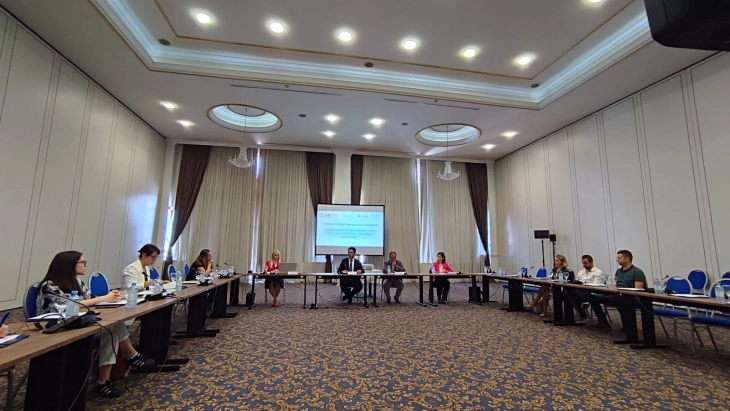Wrong perception of vaccines and low media literacy cause reduced interest in immunization

Skopje, 6 September 2022 (MIA) – After a research conducted by the Macedonian Institute for Media (MIM) concerning Covid-19 immunization and regular immunization for children, it was concluded that disinformation and the wrong perception of vaccines, as well as spreading of disinformation in online media that lack credibility, are the main culprits behind the reduced interest in immunization.
The MIM and the UNICEF office in Skopje are organizing a series of expert consultations for media workers between September-November 2022, so that they get more information about immunization in children and Covid-19.
The first expert consultation was held on Tuesday. Health Minister Bekim Sali, vice-representative of UNICEF Artur Ajvazov, and communication expert Marina Tuneva, who presented the research results, spoke at the event. Doctor Aleksandar Petlichkovski, president of the Infectious Disease Commission, gave a presentation on the topic of “Immunization and (mis)trust of the public”.
Minister Sali says that they are in constant communication with the Public Health Institute and that they’re tracking immunization in children.
“Things are not the same in every city or region. Somewhere, immunization is above 70%, but we have information that we have immunization below 50% in some places. This responsibility falls on the Institute, or the regional public health centers. We’re trying to coordinate where we’re lacking in immunization and be more focused in those areas by giving public statements and invitations for children’s immunization against MMR,” he said.
The Minister said that the campaign for the promotion of vaccination has started, and children are being called in for immunization.
“I don’t expect a measles outbreak, but we should be careful. I’d like to appeal to every parent to vaccinate their child before things get complicated,” Sali added.
Ajvazov said that immunization is one of the biggest modern-day achievements.
“All vaccines prevent diseases from being spread and save lives, but there is still a large number of children not getting their jabs, mainly due to the growing influence of anti-vax campaigns and doubts in vaccine quality. It’s a scientific fact that they work and that they’re safe," he stressed.
Doctor Petlichkovski’s presentation highlighted that an organized approach and cooperation between healthcare authorities and the media can overcome anti-vax movements.
“It’s undeniable that Covid-19 immunization is necessary as a way to end the pandemic. We should be talking about the types of vaccines that exist and how they work, as well as side effects, but when compared to the adverse effects caused by the virus, then it becomes clear that it’s a much safer alternative to getting sick,” Doctor Petlichkovski said.
He added that despite the dilemma caused by the quick creation of the vaccines and the lack of research, not one serious agency that tracks medicine safety won’t accept the risk of putting an untested product in circulation.
The series of expert consultations for media workers will continue in the upcoming period. The goal is to acquaint them with various techniques and skills for professional informing regarding vaccines, analyzing and addressing misinformation, increasing the transparency of healthcare institutions and better communication with the public in regards to immunization. dk/ba/







